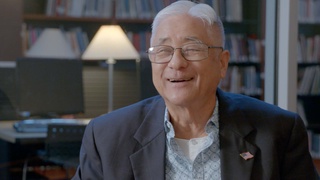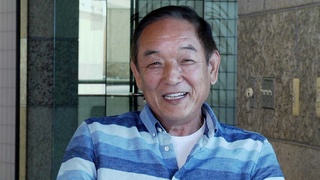Interviews
Her father bought her mother American clothes after she arrived from Japan
And so she arrived in Seattle. So I said, “What was the first thing that Dad did?” And she said, “Well the first thing he did was he took me to a department store so that – because he wanted me...you know, I was wearing a kimono and zori or geta,” and he wanted to buy her some American clothes and shoes, and so that’s how – and so the first – from the – you know – after she got off the ship and they went straight to the department store to get some American clothes and shoes, she said.
Date: August 7, 2018
Location: California, US
Interviewer: Sharon Yamato
Contributed by: Watase Media Arts Center, Japanese American National Museum







